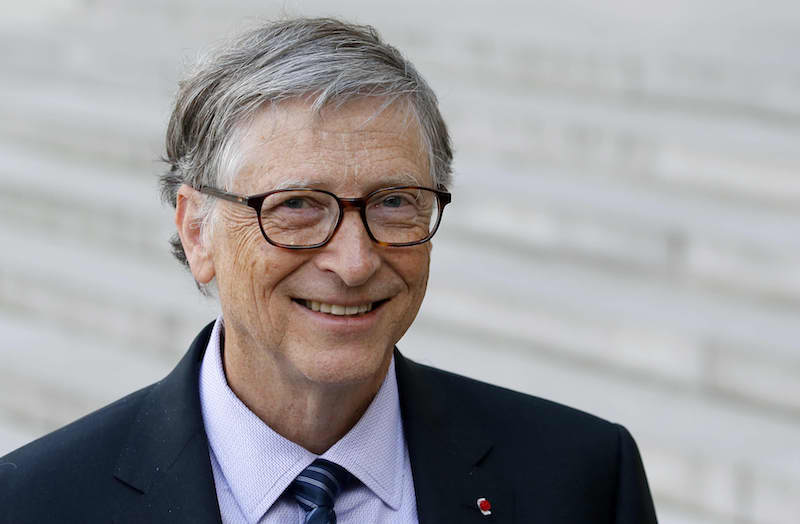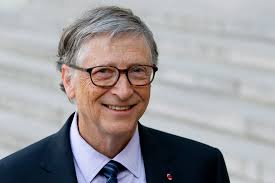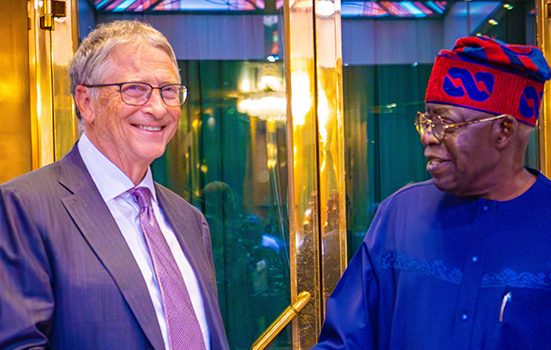Renowned philanthropist and Chairman of the Bill and Melinda Gates Foundation, Mr. Bill Gates, has called on African leaders to intensify efforts toward advancing health and development on the continent. Gates made this appeal while reaffirming his foundation’s pledge to channel the majority of its $200 billion planned expenditure over the next two decades into Africa, with a focus on driving innovation, enhancing healthcare systems, and strengthening partnerships with governments that prioritise the well-being of their citizens.
Speaking during a hybrid engagement that drew over 12,000 participants—including government officials, diplomats, frontline health workers, development agencies, and youth leaders—Gates underscored the significance of local leadership, bold policymaking, and homegrown ingenuity in reshaping the continent’s health and economic future. He stressed that the future of Africa depends heavily on unlocking the potential of its people through quality healthcare and education.
“I recently made a commitment that my wealth will be given away over the next 20 years, and the majority of that funding will be spent on helping you address challenges here in Africa,” Gates declared. He noted that transforming the continent’s developmental trajectory requires deliberate investments in areas with the highest impact, particularly primary healthcare.
Highlighting the profound importance of early-stage health interventions, Gates explained that ensuring women receive proper nutrition before and during pregnancy, coupled with adequate child nutrition in the early years, yields transformative results. He said, “Investing in primary healthcare has the greatest impact on health and wellbeing. Helping the mother be healthy before pregnancy and during pregnancy, and giving children the right nutrition in their first four years—this is where the strongest results lie.”
Citing positive examples across the continent, Gates applauded countries like Nigeria, Ethiopia, Rwanda, Zimbabwe, Zambia, and Mozambique for demonstrating what is achievable when innovation is matched with strong political will. According to him, these nations are showing progress in areas such as reducing child mortality through data-driven approaches, expanding access to basic health services, deploying advanced tools to tackle diseases like malaria and HIV, and maintaining essential health services despite financial constraints.
Reflecting on his foundation’s 20-year involvement in Africa, Gates shared his admiration for the resilience and commitment of Africans working in challenging environments. “I’ve always been inspired by the hard work of Africans even in places with very limited resources. The kind of fieldwork to get solutions out, even in the most rural areas, has been incredible,” he remarked.
He also drew attention to the transformative role of artificial intelligence, suggesting that the technology holds immense potential for reshaping healthcare delivery on the continent. Gates praised young African innovators who are already exploring how AI can be applied to solve complex local problems. “Africa largely skipped traditional banking and now you have a chance, as you build your next-generation healthcare systems, to think about how AI is built into that,” he said.
He cited Rwanda as a promising case, where AI-enabled medical technologies are being used to improve maternal care. “Rwanda is using AI to improve service delivery, like using AI-powered ultrasounds to detect high-risk pregnancies early, enabling women to get timely and possibly life-saving care,” he stated.
Gates also noted that his foundation is deepening its physical presence on the continent, with operational offices now established in Ethiopia, South Africa, Kenya, Nigeria, and Senegal. He explained that the proximity enables the foundation to collaborate more effectively with local stakeholders and ensure that its initiatives are tailored to the unique needs of each country.
Speaking at the same event, the Director-General of the World Trade Organisation and Nigeria’s former Finance Minister, Dr. Ngozi Okonjo-Iweala, echoed Gates’ sentiments. She attributed Africa’s ongoing health advancements to determined leadership, the resilience of communities, and strategic partnerships that deliver tangible results. She called for sustained collaboration to keep up the momentum and address persistent gaps in the healthcare sector.
As Africa faces a defining moment in its development journey, Gates’ renewed commitment—backed by significant financial and institutional support—offers a powerful opportunity for governments across the continent to drive meaningful, inclusive progress that transforms lives for generations to come.



